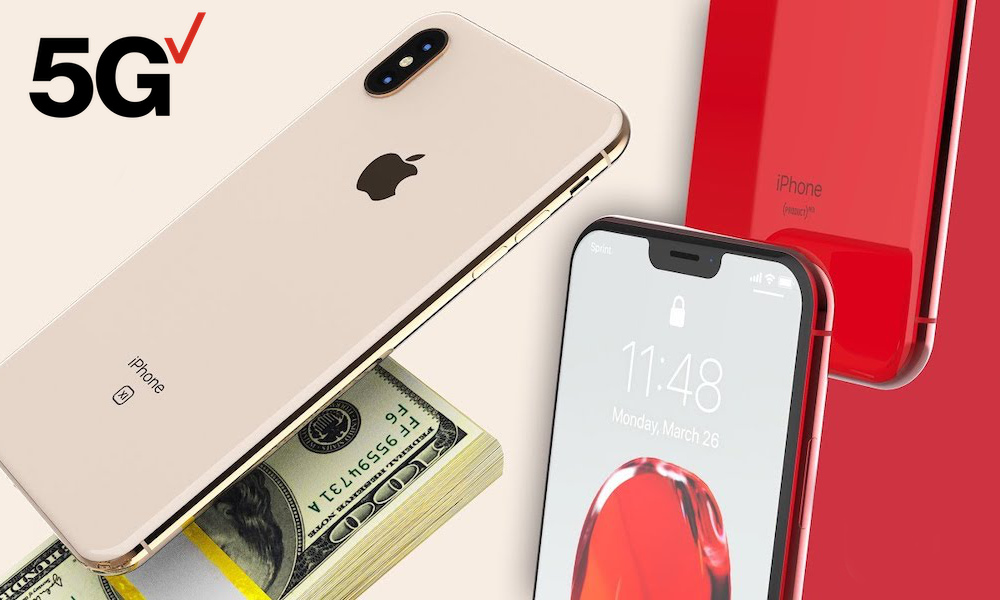AT&T and Verizon Stall 5G Rollouts Vindicating iPhone’s Slow Adoption
 Credit: EverythingApplePro / YouTube
Credit: EverythingApplePro / YouTube
Toggle Dark Mode
The next-generation of 5G broadband technology is coming, as major carriers in the U.S. and around the world forge ahead with their rollout plans. Sadly, while several of these major players were well on their way to rolling-out nationwide 5G networks within the first-half of 2019, a series of new reports published last week suggest it’s now unlikely that Verizon and AT&T (America’s top-two telecom-giants) will have their 5G networks deployed this year, as previously announced.
Verizon 5G
According to a PCMag report outlining the details of its latest quarterly earnings call, Verizon’s CEO, Hans Vestberg, pointed to “a lack of standards-compliant 5G hardware” as the leading reason why his company will fall short of its proposed 5G broadband expansion beyond the markets of Houston, Indianapolis, Los Angeles, and parts of Sacramento, within the first-half of 2019.
AT&T 5G
AT&T, meanwhile, previously announced a limited 5G rollout in 12 cities: Atlanta, Georgia, Charlotte and Raleigh, North Carolina, Dallas, Houston, San Antonia and Waco, Texas, Indianapolis, Indiana, Jacksonville, Florida, Louisville, Oklahoma City, and New Orleans — however, the publication notes, since lodging its bold claims last month, AT&T’s not offered any further details about its coverage and/or network performance.
Both carriers, according to the report, appear to be dealing with a similar issue, though: “They ultimately made bold promises that equipment manufacturers simply couldn’t fulfill.”
In Verizon’s case, Vestberg noted that OEMs like Samsung and Motorola have delayed the launch of their 5G-compatible equipment (CPEs) such as home-based routers, in a bid to focus more on the deployment of 5G mobile phones, first.
And in the curious case of AT&T, the publication notes, its earliest 5G-compatible hardware from NETGEAR, may have launched on early firmware not fully-optimized to deliver true 5G performance. AT&T has also come under fire, already, for advertising “5G Evolution” availability and speeds where, in reality, they’re only faster 4G LTE speeds available.
Is Apple Vindicated?
While Verizon and AT&T are only two among the many telecom giants currently racing to deploy their 5G networks, it’s worth noting that each carrier — and each device-maker, respectively — have their own plans for adopting the technology. And these plans, though they may coincide in terms of timing, will ultimately arrive to market at different times.
Apple was actively testing 5G using unidentified iPhone devices as recently as last year — however multiple reports have since come out saying that the iPhone-maker plans to hold-off on 5G adoption, at least until 2020.
While it may seem like Apple’s just ‘dragging its feet’ by waiting another full year to adopt 5G (even as its closest competitors gear-up to launch their first 5G offerings this year), it’s worth pointing out that given the sheer infancy of 5G technology, any move on Apple’s part to delay its adoption would not be unprecedented.
As Apple fans may recall, the company released its GSM/GPRS-equipped iPhone in 2007, waiting until the following year’s model to release 3G even despite the technology’s widespread availability at the time. Similarly, 4G was absent from the company’s iPhone 4s (2011) despite LTE’s prevalence at the time.






